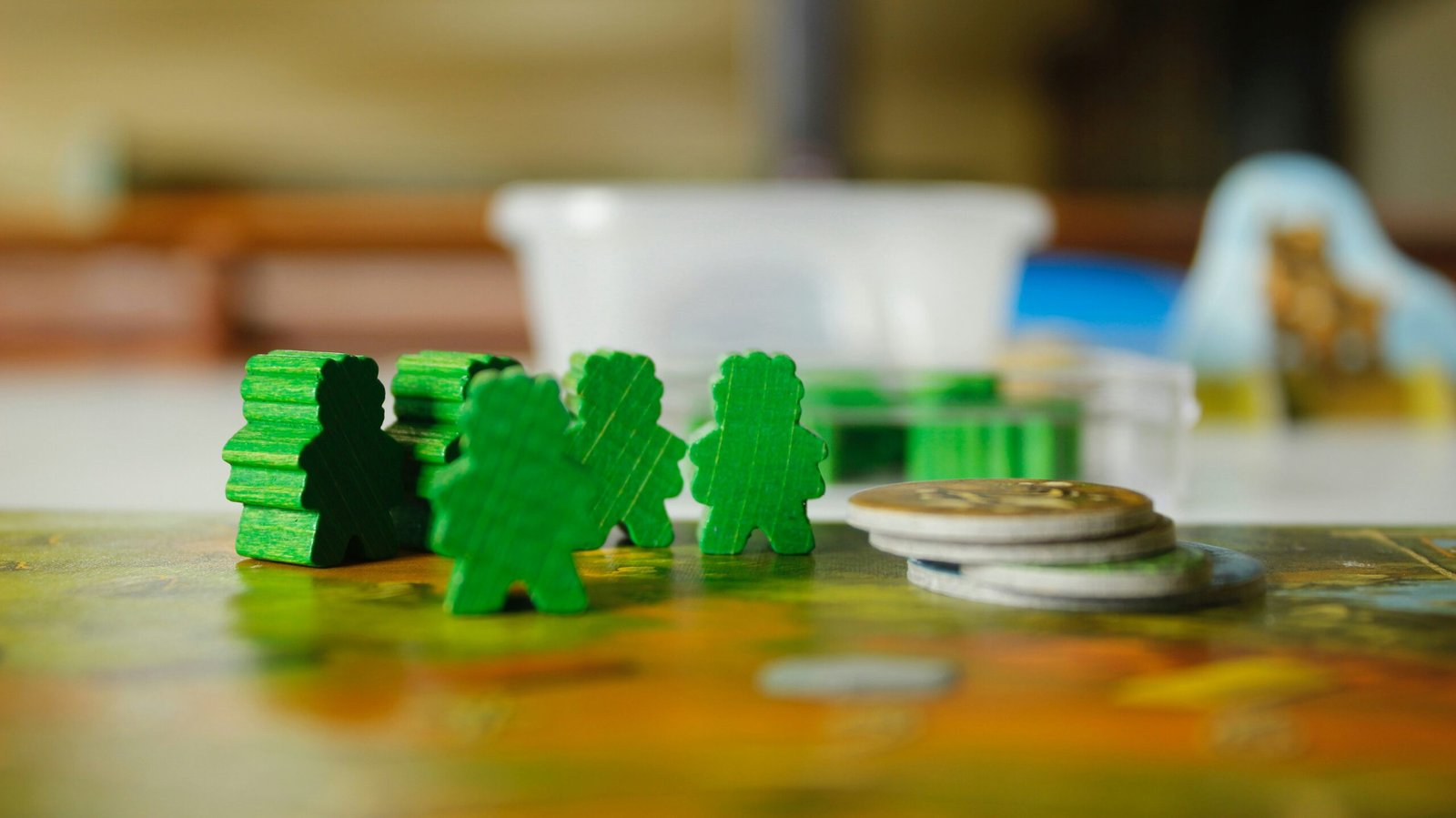The Joy of Board Games
Board games have long captivated audiences across various demographics, fostering connections among friends and family while offering a delightful escape from the rigors of everyday life. Their charm lies in the blend of strategy, luck, and collaboration, making each game session a unique experience. The social interaction that board games promote is invaluable, as they serve as a platform for communication, teamwork, and even friendly rivalry. As players gather around a table, discussing strategies or reveling in the thrill of competition, they create shared memories that can last a lifetime.
The appeal of board games is not limited to a single style or genre. Across the United States, local culture, traditions, and preferences play crucial roles in shaping gaming experiences. From classic games that traverse generations to modern design innovations, board games reflect the values and interests of the communities that embrace them. For instance, a state with a rich coastal history may favor games that emphasize maritime themes, while another steeped in agricultural traditions might lean towards farming simulation games. This diversity enriches the board gaming landscape and illustrates how regional influences can shape what games become popular.
In selecting the top board games for each state in this guide, careful consideration was given to community engagement and social interaction. We examined factors such as local popularity, cultural significance, and testimonials from regional players. These criteria underscore the importance of fostering connections through gameplay, showcasing not only the games themselves but also the people who enjoy them. As we explore the diverse board gaming preferences across the states, readers will gain insight into the regional characteristics that define these beloved pastimes, ultimately celebrating the joy of shared experiences through board games.
Regional Favorites: Board Games Popularized by State
The diverse landscape of board games in the United States features a range of titles that resonate deeply with the residents of individual states. Each state has its own top game, often reflecting local themes, history, and community preferences. Exploring these regional favorites provides insight into how board games can foster social interaction and embody the culture of a place.
For instance, in Massachusetts, the classic game of Monopoly holds a special place, not just for its gameplay but for its historical ties to Atlantic City, which is closely mirrored in the state’s connection to the board’s famous properties. Residents often enjoy playing this game while recalling the historical significance of the areas represented.
Heading south, Texas residents have a fondness for Ticket to Ride, a game that mirrors the state’s expansive geography and diverse culture. The game of train journeys resonates with Texans’ love for travel and adventure, making it a popular choice during family game nights. With its straightforward rules and engaging gameplay, this game appeals to both seasoned and novice gamers alike.
In contrast, Oregon boasts Settlers of Catan, reflecting the state’s rich natural resources and strong emphasis on community. This game encourages negotiation and strategy, emphasizing the importance of collaboration among players, similar to the spirit of teamwork fostered within local communities.
Meanwhile, in New York, Scrabble reigns supreme, indicative of the city’s vibrant artistic and linguistic culture. Scrabble’s emphasis on words and creativity mirrors the intellectual spirit that characterizes New York’s dynamic identity. Its popularity in schools and among adults showcases the game’s enduring significance in everyday life.
These examples highlight how board games serve as cultural artifacts, encapsulating the nuances of local life in each state. By understanding the unique games that dominate the gaming scene in various regions, one can appreciate the rich tapestry of social interactions they inspire.
The Benefits of Playing Local Board Games
Engaging with locally popular board games offers a multitude of benefits that extend beyond mere entertainment. One of the most significant advantages is the opportunity to foster connections within communities. Local gaming nights not only bring together friends and family but also encourage interactions among neighbors and fellow enthusiasts, strengthening community bonds. This social aspect of gaming helps to cultivate friendships and a sense of belonging, essential components of a vibrant community.
Moreover, local board games often reflect a region’s history and culture, teaching players valuable lessons about their surroundings. Many games incorporate local landmarks, historical events, or cultural elements, thereby enhancing players’ knowledge about their state or region. This educational quality can spark interest in further exploration, making players more aware of and connected to their heritage.
Strategic thinking and teamwork are other vital skills developed through local board gaming. Many games require players to devise strategies, make decisions under pressure, and work collaboratively to achieve common goals. Such skills can translate into real-life situations, enhancing an individual’s problem-solving abilities and their capacity to work effectively in team settings.
In addition to cognitive development, engaging in board games can provide significant health benefits. Research indicates that playing games can act as a effective stress reliever, offering a break from the pressures of daily life. Furthermore, board gaming has been linked with improved cognitive functions such as memory retention and critical thinking. These mental exercises can be particularly beneficial for individuals of all ages, helping to keep the mind sharp and engaged.
Ultimately, embracing local board games enriches one’s life through social interaction, cultural education, skill development, and health benefits. This makes joining local gaming groups or gathering with family and friends to enjoy regional titles an invaluable experience.
Getting Involved: Local Board Game Communities and Events
Engaging with local board game communities can significantly enhance your gaming experience. Across various states, board game cafes, meetups, and conventions offer players a platform to connect, share their interests, and explore new games. Board game cafes provide a welcoming atmosphere where fans can gather to enjoy a vast selection of games, often accompanied by refreshments. These venues are excellent for those new to the scene or looking to deepen their existing knowledge of board games.
Joining a board game meetup can also present a fantastic opportunity for social interaction. Websites such as Meetup.com frequently list local gatherings where individuals can come together and play popular titles or discover hidden gems. These events cater to various skill levels, ensuring that both novices and seasoned players can participate comfortably. Local gaming stores often host events as well, providing a hub for interested players to network and find like-minded individuals.
For those interested in larger scale events, board game conventions are held across the country, showcasing popular games and new releases. These conventions often feature tournaments, exhibitions, and panels hosted by game designers, allowing attendees to gain insights directly from industry professionals. Participating in these conventions can not only solidify one’s place within the board gaming community but also serve to inspire and inform budding game creators and strategists.
For those looking to start their own gaming group, consider establishing a regular meeting schedule, creating a social media presence to promote the group, and reaching out to friends or local fans through online forums. The camaraderie found within board gaming fosters a wonderful sense of belonging, inspiring connections that can last long beyond the gaming table. Nurturing these relationships can enrich the community experience, proving that board gaming is not merely about the games themselves, but the friendships formed along the way.







Leave a Reply